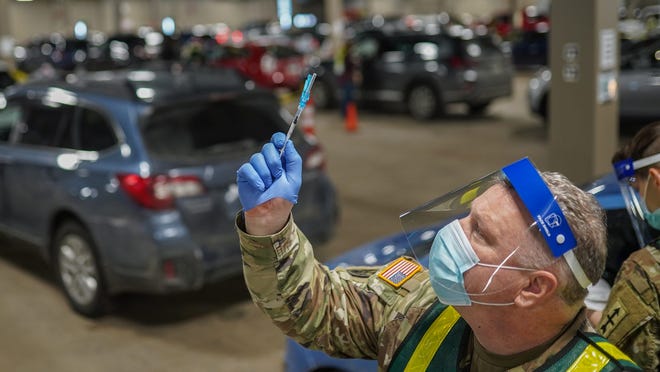
When Sen. Mike Crapo, R-Idaho, then-chairman of the Senate Banking Committee, introduced a banking bill that included easing requirements for some midsize banks more than five years ago, advocacy groups were quick to sound the alarm.
Among the provisions advocacy groups and many Democratic lawmakers worried about was one that would dramatically reduce the number of banks that were subject to the stringent Dodd-Frank Act instituted in the aftermath of the Great Recession. That law was passed by the U.S. Congress in 2010 to prevent the excessive risk-taking that led to the financial crisis.
Still, Crapo's bill also became law and that provision, which raised the asset threshold for enhanced regulatory standards from $50 billion to $250 billion -- thus leaving out banks that until then would have been operating under the Dodd-Frank rules -- is being blamed by advocacy groups for the failure of two banks over the weekend.
Santa Clara-based Silicon Valley Bank and the New York-based Signature Bank, which had more than $200 billion and $110 billion in assets, respectively, both collapsed and were taken over by federal regulators.
Congress must repeal the Trump-era law, which was supported by both Republicans and Democrats, say advocates and some lawmakers.

“It’s a wake-up call,” Renita Marcellin, advocacy and legislative director for Americans for Financial Reform, a financial-reform group in Washington, D.C. told USA TODAY. “Congress should be thinking and starting to figure out how to repeal this law."
FED:Some economists expect Fed to keep interest rates unchanged amid Silicon Valley Bank crisis
BLOG:Silicon Valley Bank, Signature Bank collapses explained, live updates on new developments
The new law meant 25 of the 38 largest banks in the United States were no longer subject to stronger capital and liquidity rules, enhanced risk management standards, living-will requirements and some stress testing requirements, according to the Center for American Progress, a public policy research and advocacy organization.
Sen. Elisabeth Warren (D-Massachusetts), said "repealing" the legislation, which rolled back critical parts of Dodd-Frank, should be “an immediate priority for Congress” in an op-ed for the New York Times.
“First, Congress, the White House and banking regulators should reverse the dangerous bank deregulation of the Trump era. Repealing the 2018 legislation that weakened the rules for banks like S.V.B. must be an immediate priority for Congress,” she wrote.
Proponents of the bill, including Republican lawmakers and the banking industry, saw the sweeping scope and regulatory costs imposed by the Dodd-Frank Act on smaller banks as “overregulation.”
“It addresses some of Dodd-Frank’s biggest burdens to ease the regulatory costs on these small banks — costs which are ultimately transferred on to consumers,” said Paul D. Ryan, then-House Speaker and Wisconsin Republican.
The changes in Dodd-Frank did not cause the failure of the banks, Thomas Hoenig, a distinguished senior fellow at the Mercatus Center at George Mason University and former president of the Federal Reserve Bank of Kansas told USA TODAY.
"The amendments were a bipartisan action to ease some of the burden on smaller regional banks," says Hoeing. "There was nothing in those changes that prevented the Fed Board of Governors from examining this bank, or questioning its growth rate, or criticizing its concentrations."
The bank’s management was incompetent and sales-oriented, he says.
"Nothing kept the regulators from seeing this, certainly not the changes to Dodd-Frank," says Hoenig. "The issue that needs focus is that the industry is not over-capitalized. That’s where the critics need to focus attention."
On Monday, President Joe Biden said he would ask Congress and regulators to strengthen the requirements for small banks, such as Silicon Valley Bank.
The current chairman of the Senate Banking Committee, Senator Sherrod Brown (D- Ohio), who opposed the 2018 bill, has not said if he would support a similar move.
Asked about his plans, his office pointed to his record.

As then-Ranking Member of the Banking and Housing Committee in 2018, Brown took to the Senate floor six times to fight the bill’s passage and opposed the bill for weakening stress tests and capital requirements for banking institutions.
As the bill was being debated in 2018, the Center for American Progress, called it misguided and “a solution in search of a problem.”
“If enacted, the bill would make the U.S. financial system—and key regional economies—more vulnerable to another financial crisis, potentially putting taxpayers back on the hook to bail out the same banks once again,” it warned.
“We want policymakers and members of Congress to not give into the bank lobbies,” says Marcellin. “It's a reminder that we need to undo a lot of this stuff that happened during the Trump administration because it's coming back to haunt us.”
Swapna Venugopal Ramaswamy is a housing and economy correspondent for USA TODAY. You can follow her on Twitter @SwapnaVenugopal and sign up for our Daily Money newsletter here.
Source link









